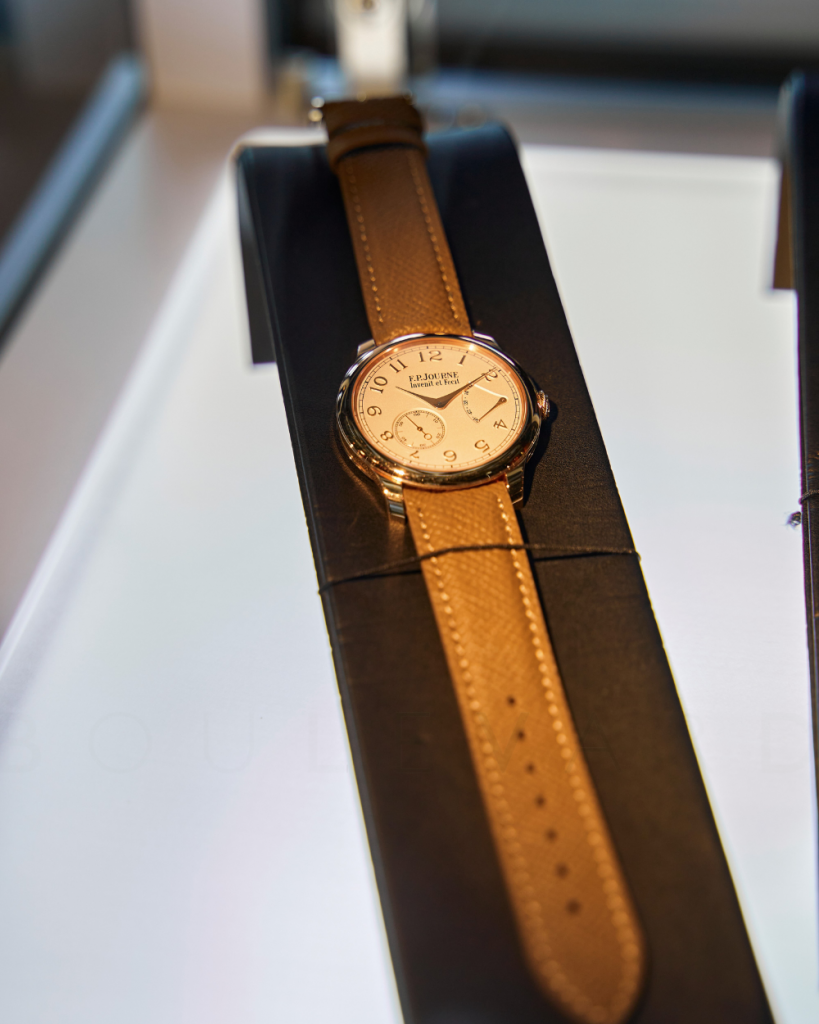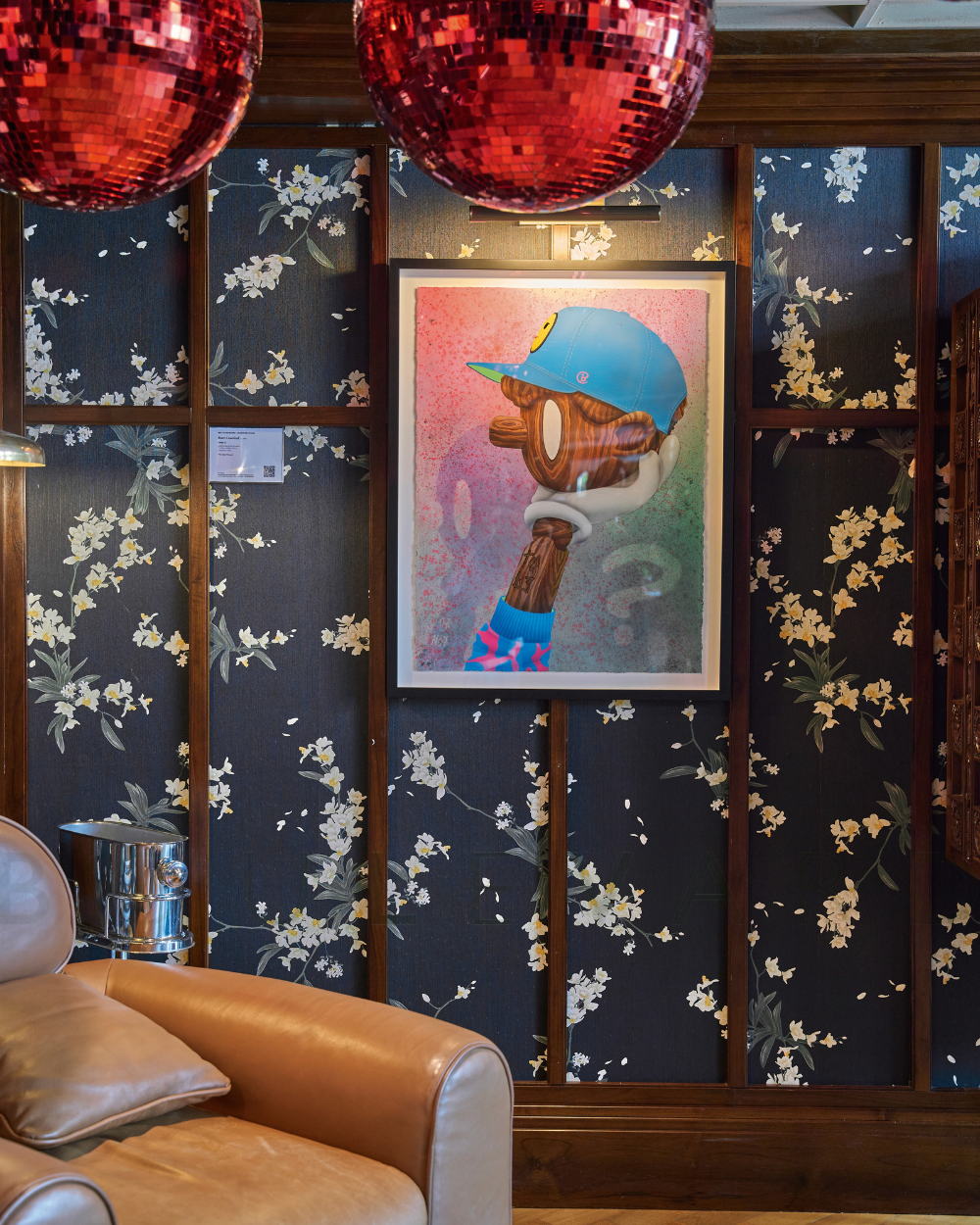The interview: Jonathan Crockett, chairman of auctioneers Phillips Asia
Jonathan Crockett says his role is slightly different from a typical chairman within an auction house.
Normally, the chairman of a company will oversee the board of directors, help decide on key C-suite appointments, and at regular intervals, check up on a CEO to ensure a company is running smoothly and is financially healthy. Generally, the chairman is not a day-to day role, and the chair won’t be involved in the ‘nuts and bolts’ of daily business operations.
The chairman of auctioneers Phillips Asia, Jonathan Crockett, explains that his role is rather different. “Within the auction industry, the title of chairman or deputy chairman is used, not necessarily in the typical way it might apply in another industry, where it tends to be in the context of chairman of the board,” he says. “At an auction house, it’s a title that designates someone who sits at the top of the organisation and has the most important client contacts for the business.”


At most large businesses boasting a turnover in the multi-millions or billions, the senior leadership team will be insulated from the end consumer of their product by layers of management, sales and distribution staff, and retailers. That is not the case at a company like Phillips, which last year realised global sales of US$1.3 billion, helping the world’s most privileged people acquire or unburden themselves of valuable artworks, jewellery, watches and other rare, desirable objets.
“The key difference between what we do and, for example, a company that sells fast-moving consumer goods, is the personal interaction that I have — that I and the other members of our senior management have — with our clients, or our most important clients,” Crockett says. “If you’re selling toothpaste, for instance, you’d never expect the C-suite level executives to be having personal interactions with the average users, or even the most important wholesale buyers.”
However, having been charged with establishing Phillips’ business in Asia from scratch, Crockett says, “My role is slightly different from your typical chairman within an auction house. When I joined Phillips, we’d recruited a number of people to be there on the ground from my first day, so that it wasn’t just me turning up and twiddling my thumbs and figuring out how to do things. I had a bare bones team to get the ball rolling with. And since then, I’ve had the opportunity to build this company into what it is today.”
In those early days, seven years ago, as he was setting the business up in this region, “I wasn’t just the man with the key client contacts,” Crockett says. “I was also literally getting my hands dirty, rolling up my sleeves, putting pictures on the walls, climbing up ladders, changing lightbulbs. I was going out researching potential office locations or gallery exhibition locations. I was hiring people. I was writing our press releases. From overseeing video production, catalogue production, to putting together the auctions themselves, I was involved in every single touchpoint.”


Today, Phillips has representation in eight different cities across Asia and a staff of nearly 100 people in this part of the world. In March, Crockett says, the Asian arm of the business will be moving into what he calls “the most impressive location that any auction house in Asia has as a headquarters” — a vast 60,000 sqft space in West Kowloon, Hong Kong. “It’s going to be a permanent exhibition space and dedicated auction room that will be filled throughout the year with content, whether it’s art, watches or jewellery, or a combination, for auction or for private sales, or for other events.”
Now that Phillips’ Asian business is on a firm footing, with ample staff to handle the myriad tasks Crockett initially juggled, instead of hanging canvases, he’s returned to looking at the bigger picture. “I certainly wouldn’t say I can sit back, but now, I can focus more on that traditional role of being chairman at the auction house, which is focusing on those top line relationships,” he says.
Having done literally every job in the business during Phillips Asia’s start-up phase, and his early days as a fresh grad entering the industry, it’d be easy for Crockett to slip into micro-management. That’s something he takes pains to avoid. “This this whole project at Phillips and building the business has been a very personal story, for me,” Crockett says. “It’s been quite difficult to not micromanage my team. But I’ve had to force myself to not do that, to allow us to grow.”
Had he gone down the route of micromanaging every aspect of the business, Crockett says, “We would never have achieved the growth trajectory we have done. By empowering individual members of the team to see their ideas through to fruition in different projects, they themselves have grown as individuals and that is what’s grown our business out, from the ground up.”
During his early years in the industry, working at a couple of other major auction houses, Crockett was frequently frustrated when his proposals were disregarded by management. “I vowed that one day, I was going to do things differently,” he says. “Today, at Phillips, I remember those times when I was perhaps held back, and could have done things more efficiently, or when I could have had a bright idea, but it wasn’t appreciated by my managers at that time. I remember those experiences, and I use those to help inform the way I interact with my reports.”
The majority of Crockett’s people are in their 20s. “I recall when I was that age, the energy levels I had, the ideas I would have. And not all of them were great ideas, but some of them some of them were and could have achieved great things — had someone listened,” he says. “So I listen to my staff, irrespective of how old they are, irrespective of how much experience they’ve had. And if I think something has legs, I will empower that person to see that project through to fruition.”
According to Crockett, sometimes, a leader needs to step back and let their crew find their own way — even if they occasionally stumble along the path. “I have learned to empower my team and give them responsibility,” Crockett says. “Because I truly believe that without allowing people to discover things for themselves to make mistakes, they’re never going to learn.”









